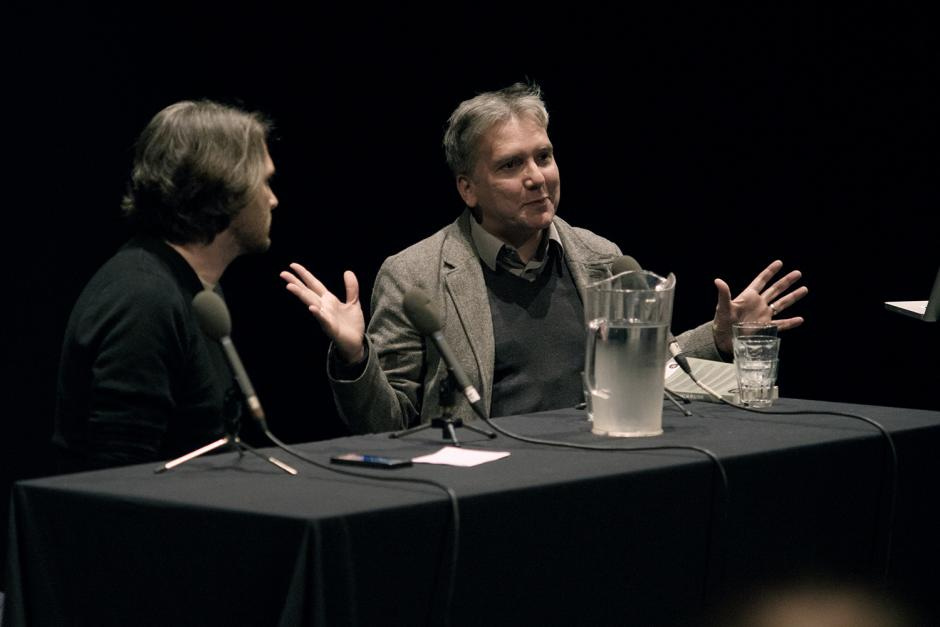One Last Swing Of The Axe
What I’ve Been Watching: I had some time off work this week, a mini-holiday designed to help me relax and catch up on reading for my thesis. But that was all disrupted thanks to my greyhound, Ida, who, sensing an opportunity to sow maximum chaos, got stung by some sort of insect and had a major allergic reaction.
I discovered her after getting home in the early hours of the morning, having just finished a shift hosting my love song dedication show over on FBi Radio. I opened the front door, unsuspecting, to discover that her beautiful, silky face had swollen up to four or so times its regular size. One overnight stay at the animal hospital later, and she was okay, but I spent much of this week worrying after her and generally feeling a bit discombobulated.
So rather than catch up on the list of movies I’ve missed recently, I settled back into comfort food. In particular, I worked my way — in reverse order — through the cinema of S. Craig Zahler.

Zahler, who in addition to being a filmmaker is also an author, heavy metal musician, and movie critic (of sorts; he writes very funny reviews over on his IMDB account), is one of my favourite living artists. He gets a bad rap from mainstream critics, and they’ve spent the last few years trying to (unsuccessfully) guess at his personal politics. He makes smarter and more ground-breaking art than he is ever given credit for, and each of his three movies is a masterpiece: Dragged Across Concrete, released last year, is a slow-motion crime epic brimming with cruelty, Brawl In Cell Block 99 is a prison drama that juggles heart and gore, and his debut, Bone Tomahawk, is an anti-Western assembled out of bracken.
The toughest, but perhaps the most rewarding, is Bone Tomahawk. A sand-blasted and unbelievably violent western, it flirts with themes of colonialism and toxic masculinity. But it’s not really about those things. It’s not about anything, specifically, except for pain and suffering. By the time you get through those last 20 minutes, you feel changed. Not, mind you, because you’ve been gifted some new way of seeing the world, or because the boundaries of your understanding of the human condition have expanded.
No. You’re changed very literally — as in, you are now the person who has seen Zahler’s brutal, uncompromising images. It’s a “before and after” movie, and I have been thinking about it all week.
What I’ve Been Reading: The desire for comfort also dictated my reading habits this week. Not only because of the Ida Incident, but because of the uptick in reading I have to do for uni — semester has started up again, and we’re getting into crunch time for the thesis. As a result, my “work” reading has involved dividing up my time between Hegel’s Phenomenology of Spirit, Freud’s Civilisation And Its Discontents, and Jesse Prinz’s The Emotional Construction of Morals. Hopping from one to the other often makes me feel like my brain is turning to porridge.
So, inbetween, I have become obsessed anew with the work of Mark Fisher. Fisher’s style is obviously — maybe even embarassingly — influential on my own; I often feel like everything I write, even entries in this newsletter, owe a great debt to him.
Fisher was a cultural critic and philosopher who wrote about capitalism, cinema, music, and the eerie. His best-known work is Capitalist Realism, a short book about the way that capitalism convinces us that it is the only adequate system available for governing life on the Planet Earth — the book’s subtitle, Is There No Alternative?, is something of a rhetorical question, given how hard capitalism itself insists the answer is “no”.
But the real meat of Fisher’s work was the writing he did on his blog, K-Punk. The best entries have been compiled into a thick book, put out by Repeater, but it’s just as fun to scroll through the site itself and pick an article at random. He has his obsessions — Spinoza, Marx, Lacan, Ballard, Derrida, Kafka — and they pop up time and time again. He was a writer who constructed a miniature universe, and it is thrilling to see him return to the same problem from multiple angles.

Being a freelance writer requires assembling a library in your head, a compendium of references and trends that allow you to pitch any publication on the planet about any news story currently breaking. Essentially, you’ve got to know a lot of stuff — you never want an editor to ask the question, “oh, could you cover this?” and have to either turn the work down, or try and make yourself an expert in the amount of time it takes to drum up 600 underpaid words.
As a result, the best advantage in the industry for freelancers is not an ability to write well, but the ability to curate a good Twitter timeline. Having one of the former might win you an award, if you’re writing for one of the six Australian publications that wins awards. But having one of the latter means you’re across the “culture”, whatever that means, and can sniff out a good story before anyone else.
Having been a freelance writer for a long, long time, I still sometimes feel this urge to maintain and expand my mental library. I have a secure job in an industry that I love, but old habits die hard, and I’ll often find myself nervously wondering if I should be watching more, absorbing more, sensing better stories.
Reading Fisher has provided a reprieve from such thoughts. He wasn’t the master because of the amount of stuff he knew, although he was staggeringly knowledgeable when it came to an array of disparate fields. He was the master because of his ability to synthesise new, meaningful connections between old ideas. It wasn’t about the sheer amount of stuff in his mental library; it was how he used it.
Take, for instance, his review of sex thriller Basic Instinct 2, which is actually a treatise on the work of Ballard and Lacan, disguised as a rundown of erotica:
“Basic Instinct 2 would have been far more courageous if there had been no meat sex whatsoever, if the relationship between Stone and her therapist, Dr Glass (David Morrissey) had taken place entirely through roleplay and fantasy. The meat sex, as ever, is crushingly disappointing. Where the sex is interesting, it is about playing with the Other, watching the Other watching you, recounting fantasies of the Other's fantasies.”
That intelligence and comprehension gives Fisher the ability to write about things that would be out of bounds for lesser thinkers. For instance, he long wrestled with the idea that capitalism causes depression, all without ever appearing to minimise the impact of mental illness, or describing it as merely a symptom of modern life. Elsewhere, his essays on “cancel culture” — especially ‘Exiting The Vampire’s Castle’ — walk a fine line between criticising the bourgeois modes that have infected the left and championing our ability to speak truth to powerful and corrupt individuals.

Fisher took his own life in 2017. It is a loss I feel very deeply — once or twice a week, I find myself desperately wondering what Fisher would have thought about any number of cultural objects, from ‘WAP’ to ‘The Batman’. I miss him.
What I’ve Been Listening To: If you’ll forgive me for remaining on a moribund note, another thing that made this week hard was the passing of Riley Gale. Gale, who was only 34 years old, was the lead singer of Power Trip, one of the most important metal bands of the last 10 years.
Combining the thrash intensity Sodom with the high camp experimentation of Emperor, Power Trip made class conscious metal that somehow managed to be both silly and deeply serious. Their whole discography is excellent, but the clear highlight is their song ‘Executioner’s Tax (Swing of the Ax)’, which you can watch decimate an unsuspecting audience here:
There’s also a new Necrot record out this week. It’s called Mortal, and it’s ridiculous: 40 minutes of crushing intensity. Putting it on and turning it up has been a good way of remaining distracted from, y’know, the state of things at the moment.
What I’ve Been Cooking This Week: I love sunbutter. It’s the easiest thing in the world to make. Roast sunflower seeds for 6 or so minutes, then blend it up in a food processor, adding a bit of olive oil if the butter gets too dry. And that’s it.
From there, you can either spread the stuff on toast (it’s really nice as a substitute for peanut butter, applied with a dab of jam) or, make sunbutter cookies. They’re easy — combine half a cup of homemade sunbutter with half a cup of cocoa powder, half a cup of maple syrup, some vegan chocolate chips, half a teaspoon of baking soda, half a teaspoon of salt, assemble into balls, cook for 10 minutes, and you have a (reasonably) healthy and very sweet snack. I can’t reccommend them enough.
What I Wrote This Week: I promise I won’t use this newsletter just to spam my own writing, but this week I got a rare treat — thanks to a teenager on TikTok, I had a perfect opportunity to fuse my philosophical interests with my day job.
Essentially, a young woman online filmed herself wondering whether numbers are “real”. When the video migrated to Twitter, she was roundly mocked. But she shouldn’t have been — worrying about the reality of numbers has been the cornerstone of the philosophy of maths for years. I wrote about the argument, and how her video plays into it, here.
One Good Thing On The Internet: Rising philosophical star Amia Srinivisan interviewed philosophy legend Judith Butler, and the resulting conversation — touching on coronavirus, political reform, and everything inbetween — is magic. Because of course it is.

